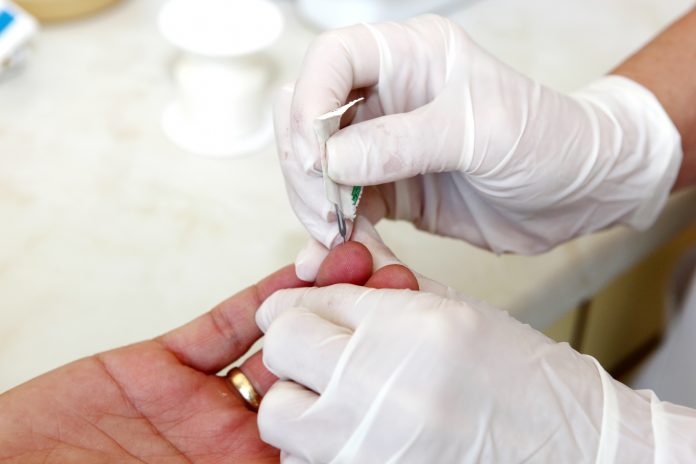PTC Therapeutics have announced the use of a blood test for the rare genetic condition, aromatic L-amino acid decarboxylase (AADC) deficiency
PTC Therapeutics, Inc. announced the launch of a no-cost testing program for aromatic L-amino acid decarboxylase (AADC) deficiency, a rare genetic condition. Children with AADC deficiency fail to thrive and commonly don’t reach developmental milestones that include being able to hold up their head, sit unassisted, and stand.
These patients also have muscular hypotonia, severe seizure-like episodes that include oculogyric crises, and the need for intensive life-long care. To identify misdiagnosed AADC deficiency patients, PTC has launched a no-cost testing program to genetically distinguish these patients from those with other disorders.
Stuart W. Peltz, PhD, CEO of PTC Therapeutics, said:
“We know that there are a large number of patients with AADC deficiency that have yet to be properly diagnosed.
“For many AADC deficiency patients and their families, the journey to diagnosis is extremely challenging. Many patients spend years without a diagnosis or are misdiagnosed with other neurological conditions, such as cerebral palsy.
“We are very proud to provide diagnostic testing – at no cost to the AADC deficiency community – to support accurate and earlier diagnosis for patients.”
AADC deficiency is caused by pathogenic mutations in the dopa decarboxylase (DDC) gene, resulting in a lack of functioning AADC enzyme, which is responsible for the final step in the synthesis of key neurotransmitters dopamine and serotonin. In the brain, dopamine and serotonin are important nerve cell signalling molecules.
Dr. Arndt Rolfs, CEO CENTOGENE, said:
“Identifying the underlying genetic mutations of AADC deficiency is critical to understand the nature and prognosis of an individual patient’s disease, and to ensure the best possible treatment.
“The analysis of 3-O-Methyldopa (3OMD) based on an innovative dried blood spot test at CENTOGENE is extremely important in support of patients suffering from symptoms related to AADC deficiency, and underscores our passion for helping to reduce the diagnostic odyssey and bring hope to patients and their families.”
The free test requires only a blood sample from a patient, which is analysed to identify a number of indicators for the disabling disease.
What is aromatic L-amino acid decarboxylase (AADC) deficiency?
Aromatic L-amino acid decarboxylase (AADC) deficiency is a rare genetic condition caused by pathogenic mutations in the dopa decarboxylase (DDC) gene, resulting in a lack of functioning AADC enzyme, which is responsible for the final step in the synthesis of key neurotransmitters dopamine and serotonin.
AADC deficiency results in delays or failure to reach developmental milestones such as walking, talking, sitting unassisted, or having head control, low muscle tone (also known as muscular hypotonia), severe, seizure-like episodes involving involuntary eye rolling (also known as oculogyric crises), autonomic abnormalities, and the need for life-long care.
Given this neurologically devastating illness, patients with severe AADC deficiency have a high risk for death during childhood.
Treatment options for patients with AADC deficiency are limited and there are currently no approved therapies that address the underlying cause.
What is the no-cost test?
Initial testing for AADC deficiency has previously, typically involved an analysis of cerebrospinal fluid (CSF), taken via a lumbar puncture, also known as a spinal tap.
No-cost testing supported by PTC Therapeutics involves a simple blood test to screen for increased levels of 3-OMD, a neurotransmitter metabolite that is elevated in patients with AADC deficiency. If 3-OMD levels are elevated, then an AADC enzyme activity analysis and DDC gene sequencing are conducted to confirm the diagnosis.
Outside of the US, if 3-OMD levels are elevated, DDC gene sequencing is conducted to confirm diagnosis. Country-specific rules regarding the test may differ, and restrictions may apply based on the country from where the request originates.
Questions about this diagnostic testing procedure can be directed here.











